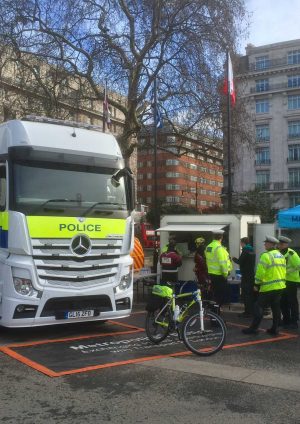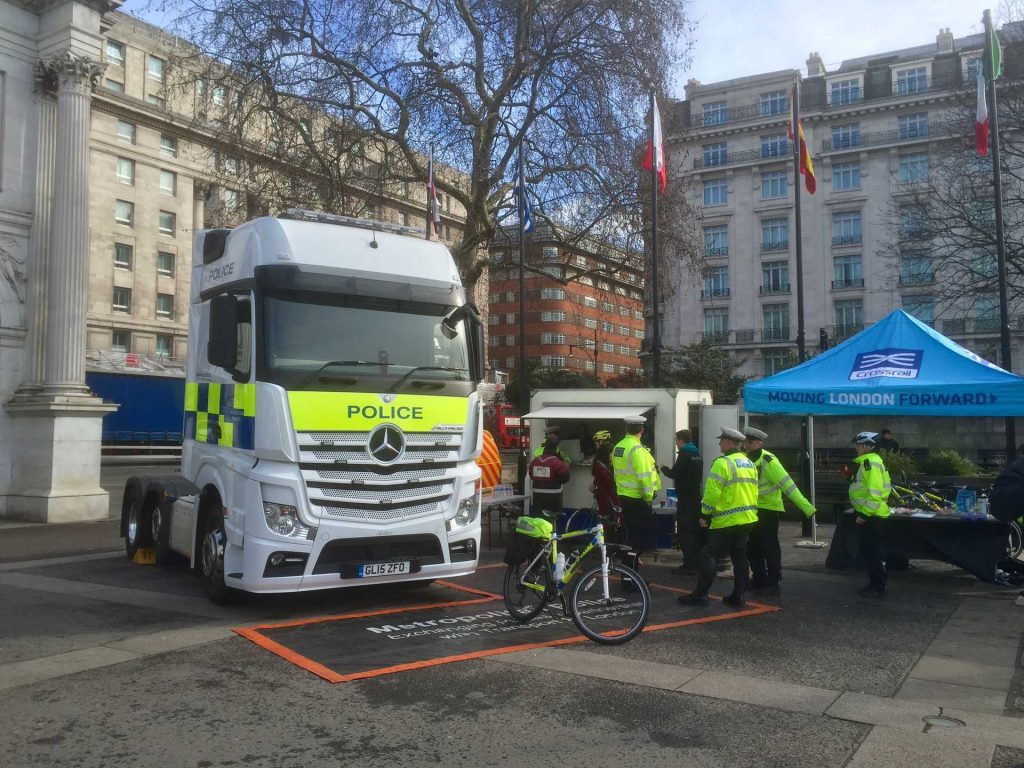
Crossrail’s approach to Police liaison
Document
type: Micro-report
Author:
PC June Saunders
Publication
Date: 14/03/2017
-
Abstract
Having a serving police officer attached to the project allowed Crossrail to have a single point of contact for all police liaison across 16 Metropolitan Police Boroughs and 6 Police Services.
High levels of collaboration were evident from all of the project contractors and other stakeholders.
This paper outlines the responsibilities of the Police Liaison Officer and where they added value and assisted in the smooth delivery of the Crossrail programme. It will be of interest to all major projects with significant security and/or community relations aspects.
-
Read the full document
Crossrail’s approach to police liaison
Major infrastructure construction projects can benefit from increased cooperation with the police and other emergency services throughout the life cycle of the project. Building on past learning Crossrail Ltd (CRL) decided that a police officer should be embedded in and be funded by the project, to act as the dedicated liaison officer between Crossrail, the police and other emergency services.
The role of the officer is to:
- Provide assurance to Crossrail Ltd and its stakeholders that policing issues are appropriately addressed.
- Act as the liaison officer for the police and emergency services during construction, fit out and delivery of the operating railway to minimise security risks to the programme.
- To provide assurance to police that security messages are being disseminated in order to prevent, detect and investigate crime effectively and to counter terrorism.
- To share crime, security, counter terrorism and road safety good practice, recognising the threats to the project.
- Be involved in initiatives and working groups that have an impact on policing and other emergency services.
- To be involved with and share best practice for emergency planning and business continuity of the project.
- Formulate and update the Memorandum of Understanding (MOU) between Crossrail and the Police.
History
An agreement was made between Crossrail Ltd and the Metropolitan Police to appoint an officer who would be embedded in the project, gain an understanding and provide a consistent approach to dealing with policing and security issues.
The officer joined the project in December 2010 and their role and involvement has grown and evolved.
Crossrail developed and defined its security requirements using the services of the Police Liaison Officer.
The Police Liaison Officer was based in the Health & Safety directorate, but had strong working relationships with the Business Continuity Manager (assisting with emergency planning, training and exercising), the security team, and delivery teams and principal contractors.
Areas of work
The main areas of work were split into three main but overlapping activities:
- Crime and Security
- Interface between Crossrail Ltd and relevant Police Services;
- Contributing to the ‘intelligence’ process within Crossrail Ltd. This included counter terrorism, traffic, crime and public order matters; and
- Liaison with specialist police units and law enforcement agencies.
- Road Traffic and Community Relations
- Input to Crossrail initiatives on road safety including cyclist safety; and
- Contributing to the maintenance of good relationships with communities, assisting the project and police community relations officers.
- Business Continuity, Emergency Planning and Training
- Liaison with other emergency services across the route of the Project;
- Contributing to contingency planning activities, including business continuity, incident response and emergency preparedness arrangements; and
- Contributing to Emergency Response and Resilience Forums.
Figure 1 – Cyclist and Lorry Awareness Exchanging Places Event
Main challenges of the role
- Understanding the needs of Crossrail Ltd and the operational practices of the police and emergency services and how these can be best aligned.
- Developing and maintaining a relationship between the Police and Crossrail Ltd on policing issues, while maintaining a professional foot in both organisations.
- Understanding the security demands as the railway construction environment developed, and using this knowledge to manage effective relationships in relation to policing and security issues.
Benefits for Crossrail
- Police officer working full-time within the project, who was able to provide rapid and dedicated advice, not distracted by other mainstream police duties.
- Developing an understanding of the Crossrail project/construction industry, so that the Police officer could more effectively act as an ambassador between Crossrail Ltd and the police and emergency services.
- Direct contact for the project with police and other emergency services and relevant government agencies to obtain advice and support.
- Direct point of contact with Police and emergency services in event of a major incident.
- Access to training materials and presentations such as ‘Document Awareness’ and ‘Counter Terrorism Awareness’ courses, which could be delivered in the Project
- Knowledge and understanding of serious road traffic collisions, in particular the interface between heavy good vehicles and cyclists, and feeding that back into Crossrail to assist in management of this risk.
- Investigative capability and advice service in the follow up for reported crimes.
Benefits for Police & Emergency Services
Many of the benefits for the Police Service were a mirror of those for Crossrail, but in addition:
- Direct and consistent contact for the Police and Emergency service with the project and its contractors.
- Contact with the wider construction industry, facilitating wider distribution of crime prevention and police messages.
- Developing understanding of the construction industry, the community in which the project operated, particular sector crime issues and issues in relation to road traffic incidents, which were fed back into the development of police approaches.
- Direct access to information relevant to police investigations.
- Access to Crossrail Health & Safety and logistics management, and related training, presentations and site visits.
Lessons Learned for the Police Liaison Officer
- They are required to have a wide range of police knowledge and skills. They should also be able to develop the role and act on their own initiative.
- They need to be self-sufficient, but with an ability to act within a team based environment
- They need to be a ‘problem solver’, with a can-do attitude.
- They are best placed within the organisation rather than at a police location, and should not be extracted from their operational role.
- While mainly autonomous, a line of accountability within both Crossrail Ltd and the police is required.
- Access to both police and Crossrail Ltd development and training is important to maintain the benefits of the role
- Support from Crossrail Ltd and police management teams is vital to enable successful deployment of the officer.
Challenges
- Understanding, as a police officer, the commercial environment, with its pressure from Health and Safety, cost and programme which has to be learned and acknowledged.
- Ensuring that those not used to having a police officer embedded within the project appreciate the value that the role can bring to day to day operations, and make best use of this.
- Ensuring that the police and emergency services are aware of the embedded role and make best use of the associated benefits that the role can deliver.
- Creating an understanding of the responsibilities and restrictions that a Police Liaison Officer must work within.
- Requests for information outside the remit of the Police Liaison Officers role.
Recommendations for future projects
Major projects with significant security and/or community aspects should consider appointing a Police Liaison Officer
-
Authors
PC June Saunders
June is a Police Constable in the Metropolitan Police with over 30 years service within Essex & Metropolitan Police Services. June was attached to Crossrail as the Police Liaison Officer between December 2010 and November 2016
